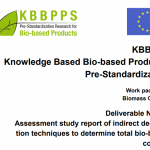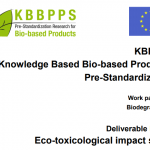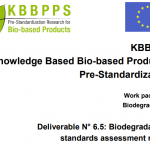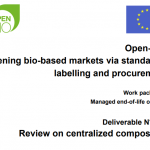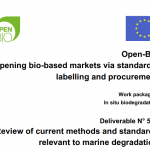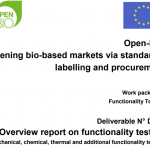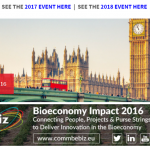Assessment study report of indirect declaration techniques to determine total bio-based content
This report covers approaches for the indirect calculation of total bio-based content. Indirect methods are useful when the bio-based product is not manufactured in a dedicated facility, causing potential fluctuations in the amount of biomass incorporated into the final article. The choice of potential methods is large, and how they are put into practice can vary the output dramatically.

